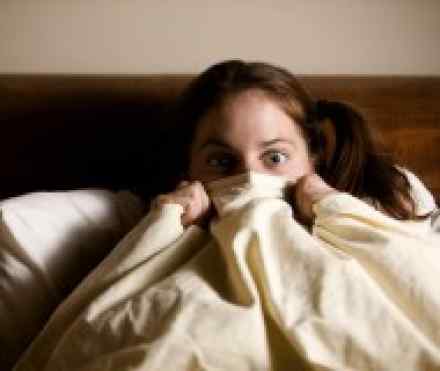-
Your dream wakes you up
-
You feel scared, anxious, angry, sad or disgusted as a result of your dream
-
You can think clearly upon awakening, and can recall details of your dream
-
Your dream occurs near the end of your sleep time
-
Your dream keeps you from falling back to sleep easily
Causes
Most nightmares occur during rapid eye movement (REM) sleep. You normally go through four to six sleep cycles a night, cycling through the sleep stages in about 90 minutes. Your REM stage lengthens with each cycle, from several seconds in the first cycle to up to an hour in the last. You're more likely to have a nightmare in the last third of your night.
Another disorder can be associated with nightmares. Many other factors can trigger nightmares, including:
-
Stress. Sometimes the ordinary stresses of daily life, such as a problem at home or school, trigger nightmares. A major change, such as a move or the death of a loved one, can have the same effect.
-
A traumatic event. Nightmares are common after an accident, injury or other traumatic event. Nightmares are prominent in post-traumatic stress disorder.
-
Scary books and movies. Reading scary books or watching scary movies, especially before bed, can cause nightmares.
-
Bedtime snacks. For some, eating right before bed — and the resulting boost in metabolism and brain activity — leads to nightmares.
-
Illness. Sometimes being sick triggers nightmares, especially if the illness is accompanied by a fever.
-
Medications. Some drugs — including certain antidepressants, narcotics and barbiturates — can trigger nightmares.
Complications
Occasional nightmares usually aren't a concern, but regularly disrupted sleep can be. It can cause excessive daytime sleepiness, which can lead to difficulties at school or work, or problems with everyday tasks such as driving.
Diagnosis
There are no tests routinely performed for nightmares, but if your or your child's sleep is severely disturbed, your doctor may recommend an overnight sleep study to help determine if the nightmares are connected to another sleep disorder. During the study, technicians monitor your brain waves, heart rate, breathing and movement while you sleep.
References
http://www.webmd.com/sleep-disorders/guide/nightmares-in-adults
http://www.medicinenet.com/nightmares/article.htm
http://www.mayoclinic.org/diseases-conditions/nightmare-disorder/basics/definition/con-20032202
http://www.webmd.com/sleep-disorders/features/when-nightmares-wont-go-away




